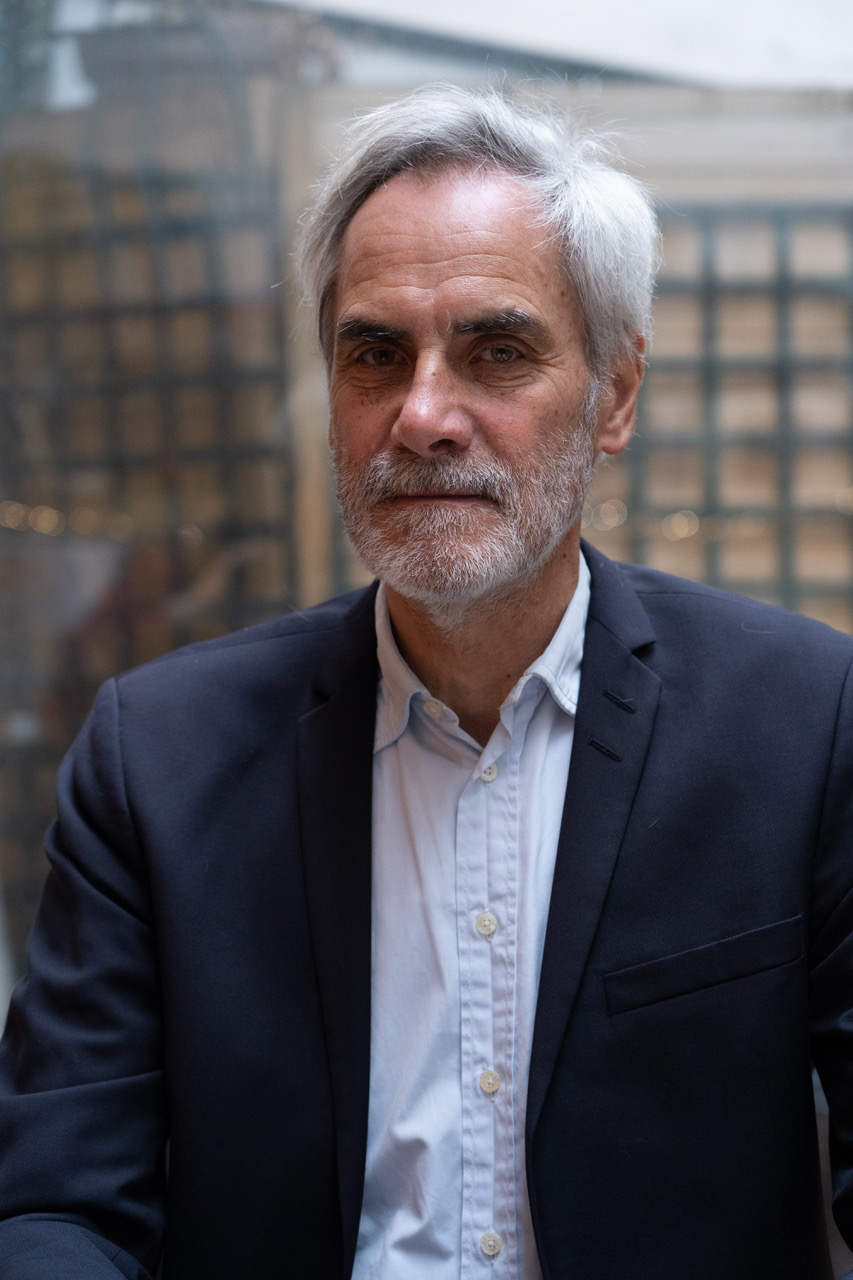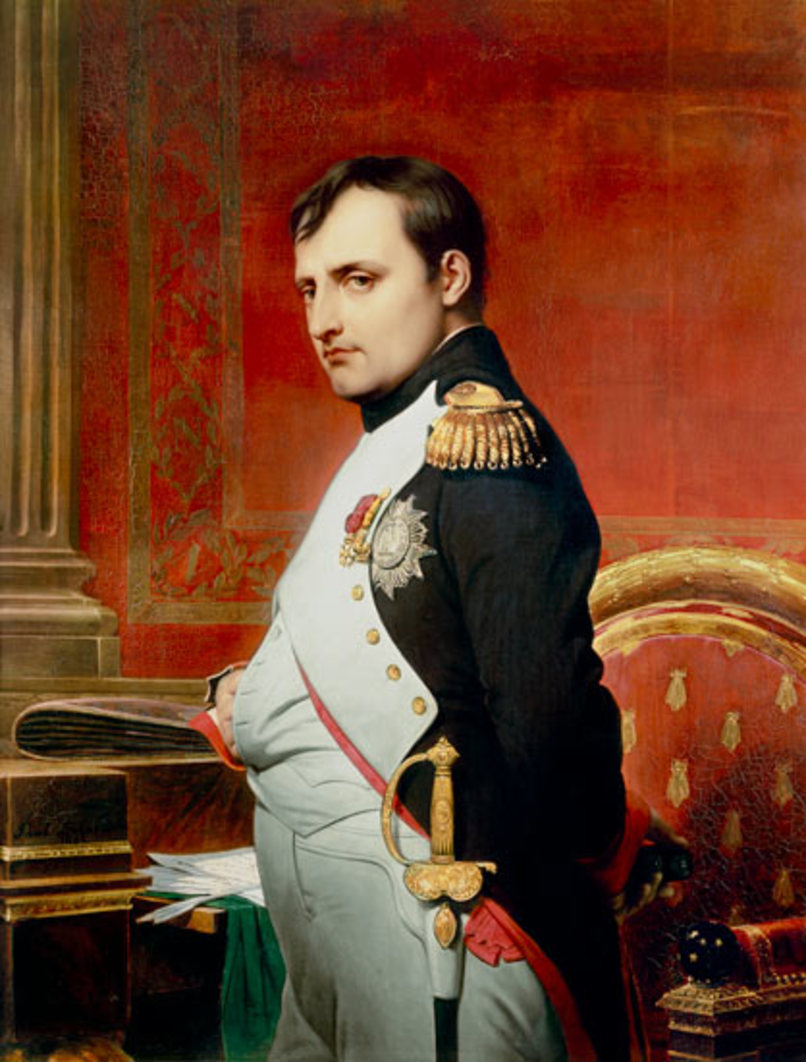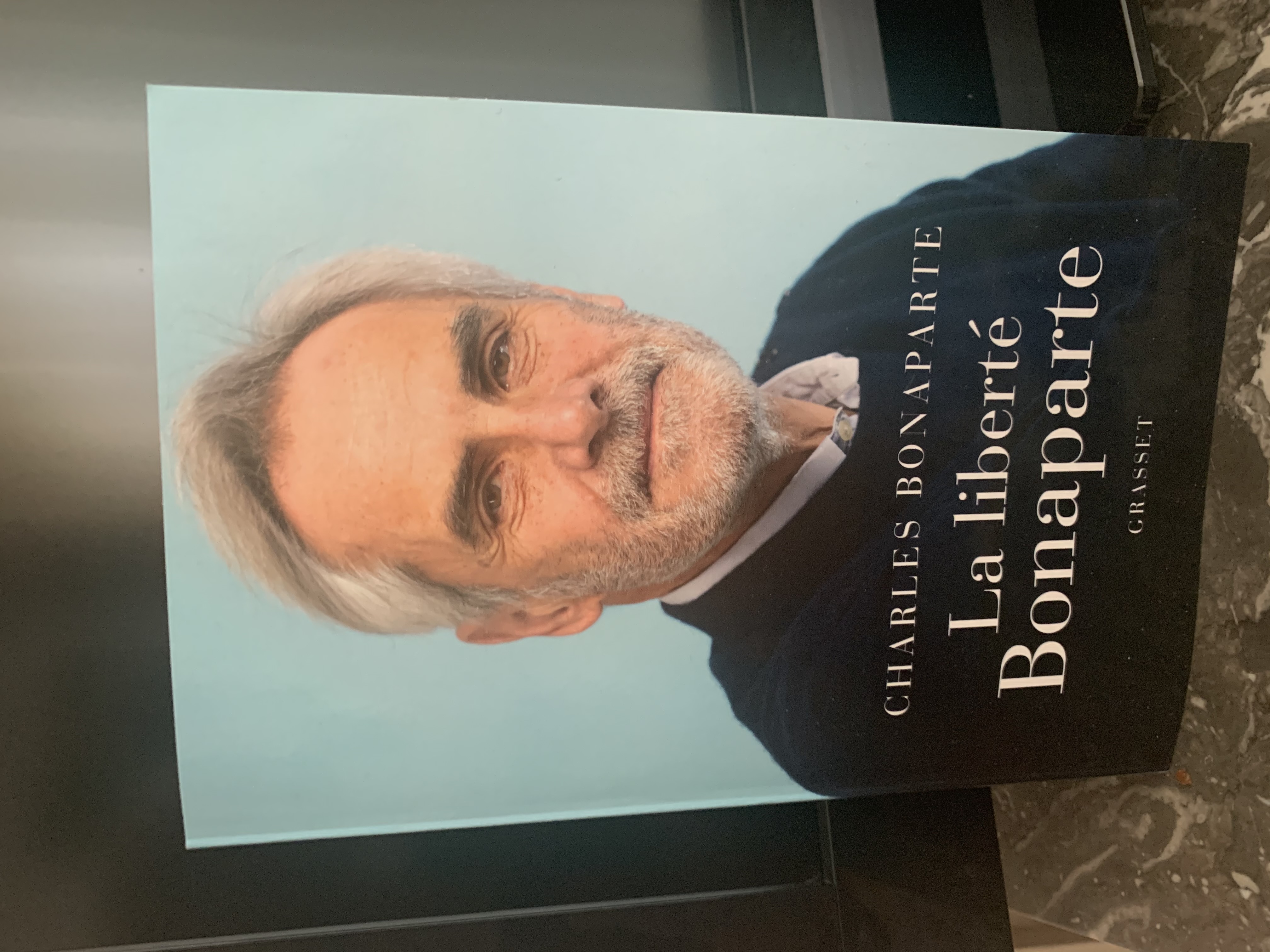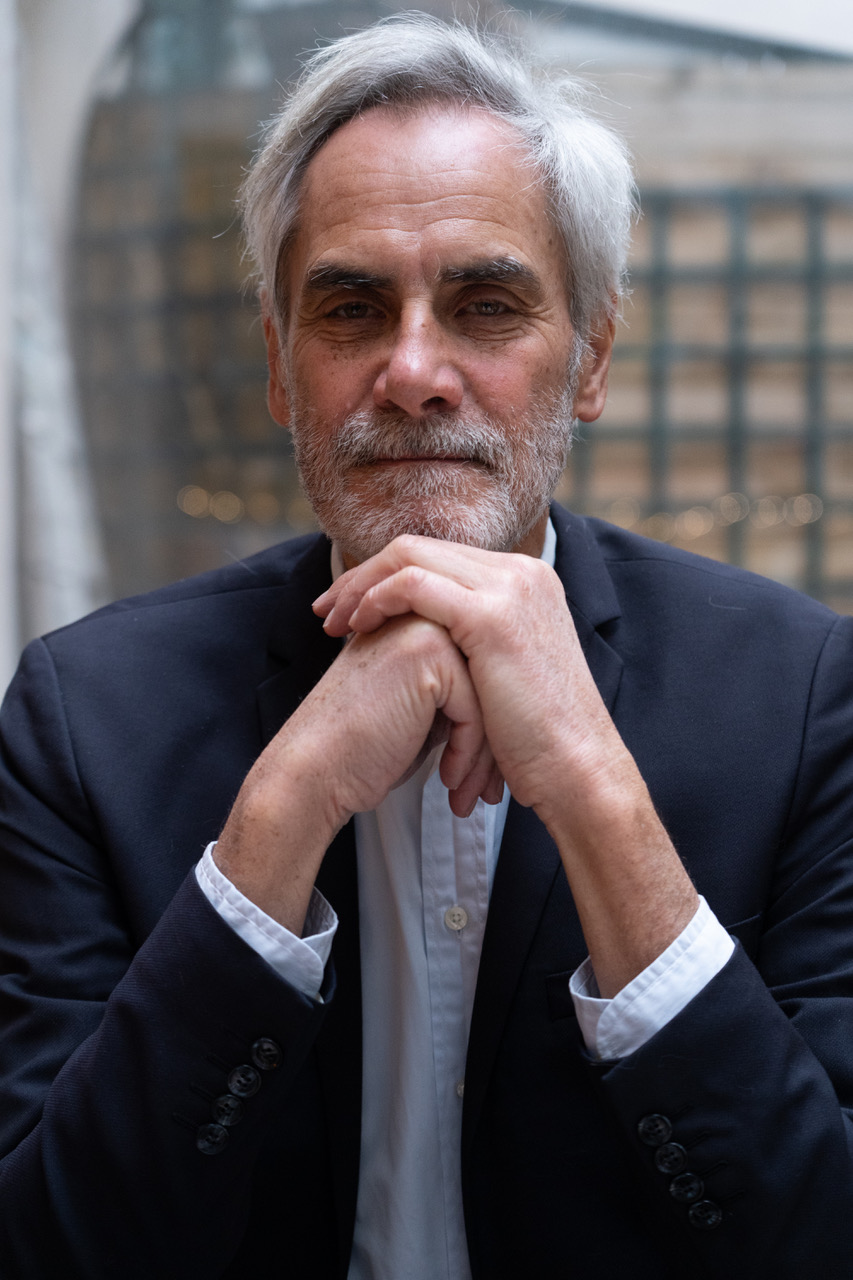Descendant of Napoleon Charles Bonaparte on the 200th anniversary of the death of the emperor on the island of Saint Helena published the book “The Freedom of Bonaparte” (Liberté Bonaparte). In an exclusive interview with Izvestia, the author spoke about the collapse of the Russian campaign of the great Corsican, his grandfather in the service of Nicholas II and how painting became an effective instrument of propaganda for the emperor.
– Is France going to celebrate this date?
– I don’t know what French President Emmanuel Macron intends to do. I’m not sure if he himself knows how to celebrate this event. It is clear that due to the pandemic, large demonstrations cannot be organized. The main thing is that there is no unity in France regarding Napoleon. Some consider him a great man, others despise him. Among other things, he is accused of abandoning republican rule and creating an empire.…
– Napoleon today is not only a myth, but also a commodity. In your latest book, you list a long list of products that use his name: alcohol, cars, motorcycles, cheeses, laundry detergents. Is the Napoleon trademark more in demand than ever?
– Napoleon has become a powerful brand even when it comes to men’s underwear and condoms, which are named after him.… Do people sincerely believe that political power is always accompanied by extraordinary sexual dignity? Is it bad if the head of state has a reputation as a great seducer?
– According to legend, of all his women, Napoleon really loved only his first wife, Josephine, who recklessly cheated on him. Why did he forgive her everything?
– Marital infidelity distinguished both of them. In this respect, he was a modern man with many love affairs and illegitimate children.… For the monarch, this was in the order of things. But I can assure you: he never had lovers – he was only interested in women.
Photo: Athena Alfonsi
Charles Bonaparte
– How could a skilled strategist Napoleon embark on a military adventure against Russia? Why did he not understand that his campaign was doomed to failure?
– He saw in Russia the last obstacle on the way to the complete domination of France in Europe. Napoleon by that time already suffered from megalomania and overestimated his capabilities… You understand this when you see his military orders – they were impossible to carry out. An atmosphere of fear reigned in the army, the generals were afraid of the emperor, hiding the truth about the real state of affairs. By that time, the weaknesses of his military strategy were understood by opponents. This was especially evident during the Russian campaign. Of course, the vast expanses of Russia also played a role in its defeat, when the French army had to fight thousands of kilometers from its borders.
– How do you explain the fact that today Napoleon, especially abroad, is more popular than ever?
– Indeed, it is estimated that not a day passes without a new book dedicated to him. As a result, their total number exceeded 70 thousand.… I think that such an unrelenting interest is associated with planetary globalization. Napoleon remains one of the main characters in world history.
– Historian Jean Tulard is convinced that the French are nostalgic for Napoleon because they regret the lost greatness of their fatherland. Do you agree with him?
– I do not share this opinion, but I know that some of the French think that way. The future of France seems to me rather within the framework of Europe, rather than within national borders. Napoleon himself thought on the scale of the entire Old Continent. Therefore, his civil code, regulating, in particular, family and private property issues, strongly influenced the legislation of many European countries.…
The great merit of Napoleon was that he created a modern state, which to a certain extent was based on the ideas of the revolution. Civil institutions existed and continued to develop.
– The writer Leon Daudet saw in Napoleon a “bloody idol”, and leftist historians called Napoleon a “war criminal” for shooting prisoners during the Egyptian campaign.
– Indeed, in Jaffa (today part of Tel Aviv. – Izvestia), the French staged a massacre of the prisoners. Napoleon himself explained it by the fact that he had captured these soldiers for the second time. Previously, he let them go on the condition that they no longer participate in battles. There were other horrific episodes, notably during the Napoleonic war in Spain.
Photo: wikipedia.org/auction.fr
Napoleon I Bonaparte, portrait by Paul Delaroche (1807)
– Napoleon was engaged in looting in the conquered countries, ruthlessly devastated their museums, primarily Italian.
– To our great regret, then the conquerors always plundered the defeated states. In this regard, Napoleon was no different from his predecessors. I condemn this barbarism. Fortunately, the stolen treasures were returned to the affected countries. The decision was made by the Vienna Congress of the winners, which took place after the defeat of France…
– The same Jean Tulard called Napoleonic France a police state. Was the country severely censored?
– It was such, if you compare it with today’s France. Interior Minister Fouche kept the press under surveillance. Napoleon understood the importance of newspapers and wrote anonymous articles for them himself. But the opposition also had the opportunity to express their point of view.…
– Napoleon created his personality cult with the help of such famous artists as Jean Louis David, Jean Auguste Dominique Ingres, Antoine-Jean Gros and others. You ironically call him in your book “the patron saint of the muses.”
– In the absence of television, he used painting for propaganda. Art was supposed to exalt the emperor in the eyes of the masses… Napoleon himself oversaw the creation of famous paintings, and in particular the Coronation of Napoleon by Jean-Louis David. He ordered to capture on the canvas characters who were not even in sight at this ceremony, for example, his mother Lutetia.
His censorship also affected the painting by Antoine-Jean Gros “Bonaparte at the Saint-Bernard Pass”, in which he is depicted prancing on a horse. In fact, he climbed the pass with his soldiers on foot and only overcame the last meters on the back of a mule, and descended, like everyone else, at his fifth point. In a word, the emperor turned painting into an instrument of his influence…
Photo: from the personal archive of Charles Bonaparte
– Biographers sometimes portray Napoleon as a person arrogant, arrogant, despising people.
– In public affairs, he did not tolerate objections, felt himself an absolute master of the situation, did not miss an opportunity to show his power… There is a lot of evidence of this from monarchs, heads of state, ambassadors, with whom Napoleon met. However, those who were directly associated with him – the closest generals, doctors, servants – spoke of him as an unusually accessible and open person.
– Publicist Alain Duhamel called President Emmanuel Macron “a 21st century Bonapartist who takes risks to achieve his goals.” What did he mean?
– It is difficult for me to decide who is a Bonapartist and who is not. The current situation in France has nothing to do with the Napoleonic era. Other problems. For Alain Duhamel, apparently, Bonapartism is to ignore the intermediate levels of power, including the deputies, and to rule the people directly. Wherein I do not know anything about the existence of the “Napoleonists” – apparently that is what they call those who want the return of the empire.
– I’ve heard claims that Napoleon would have achieved greater success in battles with the covid than Emmanuel Macron.
– You can believe it. By now, the vast majority of French people would have been vaccinated by now. During large epidemics, authoritarian regimes are more effective than democratic governments…
– The 34 km boulevards that encircle Paris are named after Napoleonic marshals Neuya, Murat, Massena, Lefebvre, Mortier and others. Whereas only one metropolitan street bears the name of Bonaparte.
– But she is one of the most beautiful in the city. There are other memorable places in Paris – the tomb in the House of Invalids, the Napoleonic Courtyard in the Louvre. Returning from the military campaign, he was surprised to find that the Vendome column, cast from captured cannons, was wanted to be crowned with a statue of him. He was against it, as he considered himself above any monuments.
– You just changed your name Napoleon to Bonaparte. What prompted you to do this? Your legendary ancestor did the opposite – General Bonaparte became the Emperor Napoleon.
– This has its own logic. It is connected with the fact that I decided to return to our family name, to emphasize my closeness to that Bonaparte, who continued the cause of the revolution. First of all, the empire, military conquests, and an attempt to conquer Europe are associated with the name of Napoleon. In short, I feel closer to Bonaparte than to Napoleon… Even if the first of them has the second, and the second has the first.
Photo: Athena Alfons
Charles Bonaparte
– You also renounced all dynastic titles such as “your imperial greatness” or “Prince of France”?
– Well, what do they mean in our time? These titles imply that today’s Napoleon or Bonaparte may one day become Emperor of France. This is an absolute utopia, for me, a Republican, completely unacceptable.
– Why then did you not choose the common surname of a mere mortal – DuPont or Duran?
– I am a mere mortal – the same DuPont or Durant, only Bonaparte… From the moment I was born, I have been connected with my ancestors by historical and dynastic ties, which I wanted to use for the benefit of my compatriots. Yes and I myself had to figure out how to coexist next to a legendary man. At the same time, I am aware that it is still a privilege to be Bonaparte or Napoleon today.
– Among your ancestors were those who served Russia?
– It my great uncle (Louis Napoleon Joseph Jerome Bonaparte. – “Izvestia”), which was Russian general during the reign of Nicholas II. Then in the armies of the world there were many foreign mercenaries. They served without any political sympathy, as today foreign specialists work in firms in different countries. After the expiration of a contract in one country, such a military condottiere usually offered his services to another state. This was by no means perceived as a betrayal.
– Do you yourself and your family intend to celebrate the anniversary of Napoleon? A festive champagne dinner?
– During a pandemic, people are not allowed to get together. I have other events scheduled for May 5 – my meeting with the Chinese will be dedicated to Napoleon. And the day before I will tell my Corsican friends about the famous countryman.
– Without Napoleon, would France be a happier country?
– A good question, which is very difficult to answer. It is quite possible that after the revolution the monarchy would immediately return, but in any case, its restoration was inevitable. Would ordinary people be happier from this? I do not know.
Politician and economist Charles Bonaparte was born in 1950 in the Parisian suburb of Boulogne-Billancourt. A direct descendant of Jerome Bonaparte, the younger brother of the Emperor Napoleon. Dynastic ties with the royal houses of Belgium, Austria, Italy, Spain. He was vice-mayor of the Corsican city of Ajaccio – the birthplace of Napoleon. Author of books dedicated to the Napoleonic dynasty, in particular “Bonaparte. The Rebellious Spirit “,” Napoleon through the Eyes of Napoleon “,” Unknown Napoleon – My Ancestor “, as well as the works” Towards a New France “,” France, Europe and Migration “. Heads the European Confederation of Napoleonic Cities.



